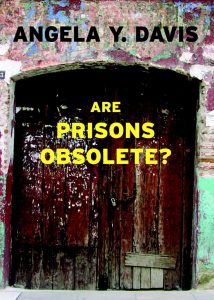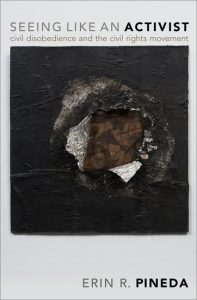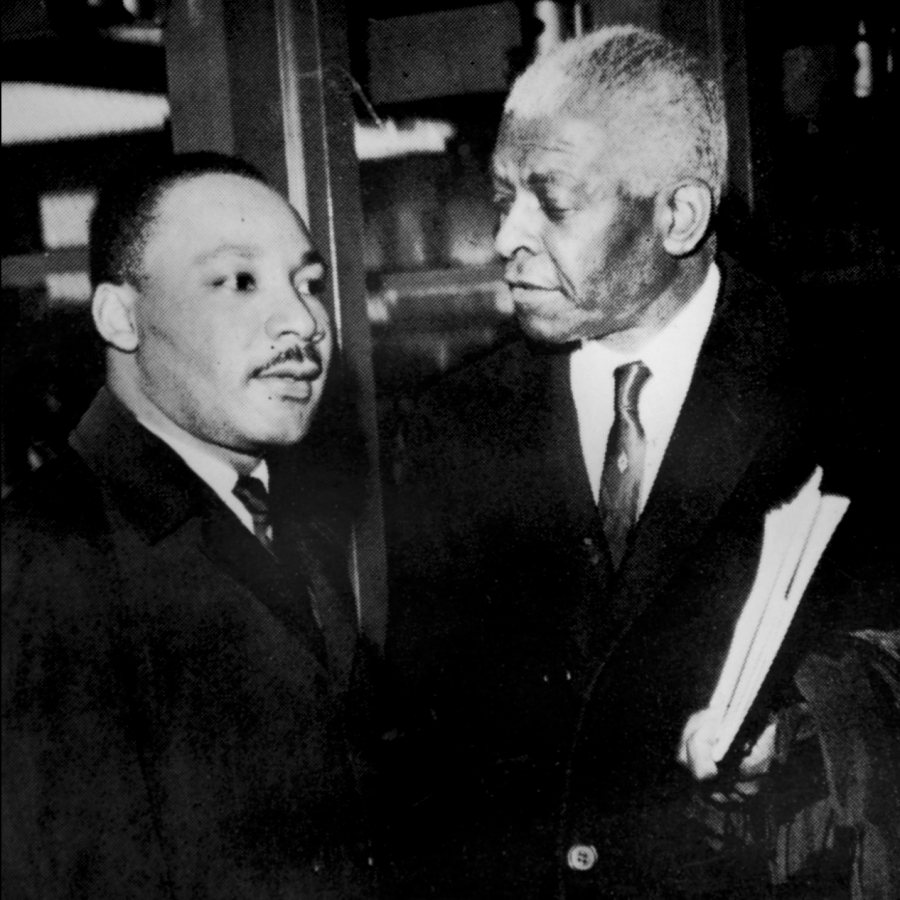Martin Luther King Jr. Day 2021
“The MLK Day committee asks that you register at least two hours in advance of each session you plan to attend. If you register later than this, it is possible you will not be admitted.”
The theme for Bates’ 2021 MLK Day observance is Confronting Our History; Justice for Coming Times.
Because of the coronavirus pandemic, this year’s programming will be presented online. Bates’ virtual MLK Day events will be available as livestream, podcast, and Zoom gatherings.
The Jan. 18 keynote, titled Reckoning, will be offered by Dr. Angela Y. Davis, Distinguished Professor Emerita of the History of Consciousness at the University of California, Santa Cruz, in conversation with Bates Professor of English and Chair of the Program in Africana Therí Pickens.
A link for each program follows individual event descriptions in the schedule below.
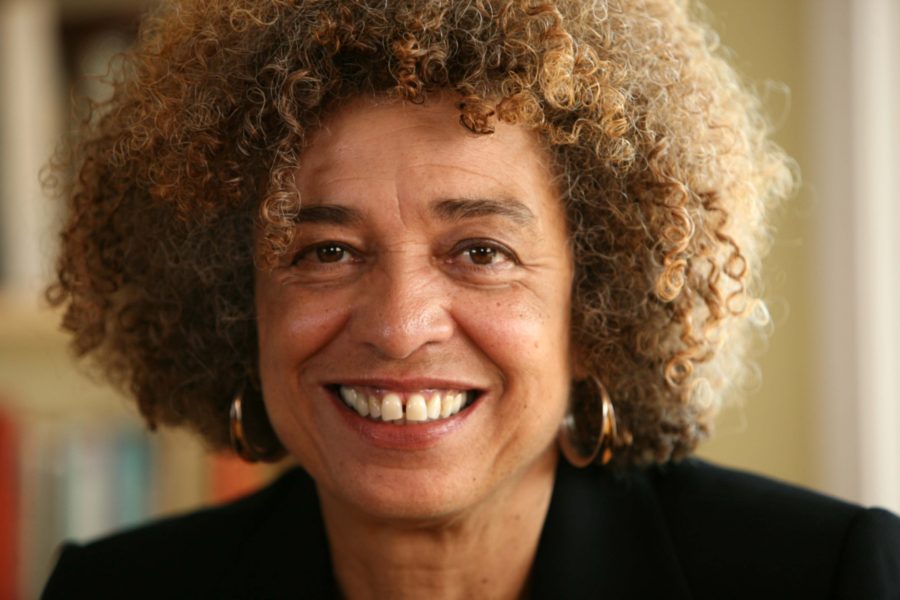
Sunday, Jan. 17
The Rev. Dr. Martin Luther King Jr. Interfaith Offerings
Podcast. All are warmly invited to spend time on the weekend leading into Bates’ robust virtual MLK Day offerings by centering with a thoughtful podcast featuring historic recordings of Bates’ spiritual social justice voices and reflective prompts from the Multifaith Chaplains. Find the podcast by searching for “Bates Multifaith” on Apple Podcasts, Google Podcasts, or Spotify — and listen, center, and reflect at your convenience.
3pm | Picture a Scientist
Film and discussion. The virtual screening precedes a panel discussion. Sharon Shattuck and Ian Cheney’s 2020 documentary chronicles the groundswell of researchers who are writing a new chapter for women scientists. A biologist, a chemist, and a geologist lead viewers through their experiences in the sciences, ranging from brutal harassment to years of subtle slights. Along the way, we encounter scientific luminaries — including social scientists, neuroscientists, and psychologists — who provide new perspectives on how to make science itself more diverse, equitable, and open. To access film you must have Bates credentials. Click here to view Picture A Scientist.
- Registration is now closed.
Panel: Berenice Carrillo, iBio; Sophia Gad-Nasr, graduate student in astrophysics; Jocelyn Reader, cancer biologist, Univ. of Maryland; Pam Baker ’69, Helen A. Papaioanou Professor Emerita of Biological Sciences, Bates; Hong Lin, Professor of Physics, Bates; Bonnie Shulman, Professor Emerita of Mathematics, Bates. Presented by: the Bates STEM Scholars.
Monday, Jan. 18
9–10:30am | The Rev. Dr. Martin Luther King Jr. Day Keynote
- See the livestream: bates.edu/mlk/live. No pre-registration required for the keynote address.
Welcoming Remarks
A. Clayton Spencer, President of Bates College
Perla Figuereo ’21 and Lebanos Mengistu ’21
Introduction of Keynote Speaker
Noelle Chaddock, Vice President for Equity and Inclusion, and Joshua Redd ’21
Keynote
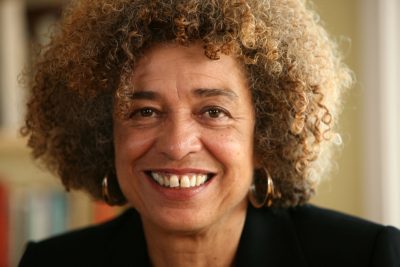
Reckoning
Dr. Angela Y. Davis, Distinguished Professor Emerita of the History of Consciousness at the University of California, Santa Cruz, in conversation with Professor of English and Chair of the Program in Africana Therí Pickens.
Angela Davis’ teaching career has brought her to San Francisco State University, Mills College, and the University of California, Berkeley. She also has taught at UCLA, Vassar, the Claremont Colleges, and Stanford University.
She spent the last 15 years at the University of California, Santa Cruz, where she is now Distinguished Professor Emerita of the History of Consciousness, an interdisciplinary doctoral program, and of Feminist Studies.Davis has written nine books and has lectured throughout the United States and around the world.
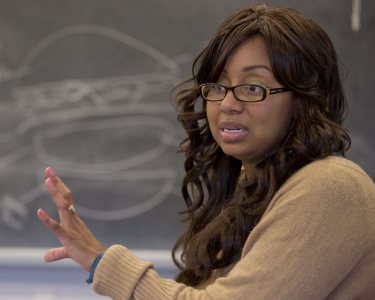
A persistent theme of her work has been the range of social problems associated with incarceration and the generalized criminalization of those communities that are most affected by poverty and racial discrimination. She draws upon her own experiences in the early 1970s as a person who, after being placed on the FBI’s Ten Most Wanted List, spent 18 months on trial and in jail. She has conducted extensive research on numerous issues related to race, gender, and imprisonment. Her most recent book is Freedom is a Constant Struggle: Ferguson, Palestine, and the Foundations of a Movement.
Davis is a founding member of Critical Resistance, a national organization dedicated to the dismantling of the prison-industrial complex. Internationally, she is affiliated with Sisters Inside, an abolitionist organization based in Australia that works in solidarity with women in prison.
Like many educators, Davis is especially concerned with the general tendency to devote more resources and attention to the prison system than to educational institutions. Having helped to popularize the notion of the prison-industrial complex, she now urges her audiences to think seriously about the possibility of a world without prisons and to help forge a 21st-century abolition movement.
10:45am–12:15pm | Workshops Session I
Abolition: A World Without Policing and Prisons
Workshop. The question posed in the title of Angela Davis’ 2003 book Are Prisons Obsolete? remains urgent. Focusing on Abolition for the People, a set of essays convened this fall by Colin Kaepernick, this workshop imagines what would be involved in the abolition of police, prisons, punishment, and the carceral state. We encourage participants to pre-read Davis’s essay “Why Arguments Against Abolition Inevitably Fail.” Reading the essay is, however, not required. All are welcome! The workshop includes a panel discussion and an interactive conversation with audience participants.
- Registration is now closed.
Led by: Jerome Bennett ’10, Kayla Jackson ’19, Michael Rocque, Associate Professor of Sociology. Organized by: Susan Stark, Associate Professor of Philosophy, who also moderates and hosts.
Let’s Celebrate Ashley Bryan!
Exhibition tour. The Bates Museum of Art offers a remote tour of our exhibition Let’s Celebrate Ashley Bryan! The show features paintings, prints, drawings, and collages by the prominent African American artist, many of which have recently entered the museum’s permanent collection.
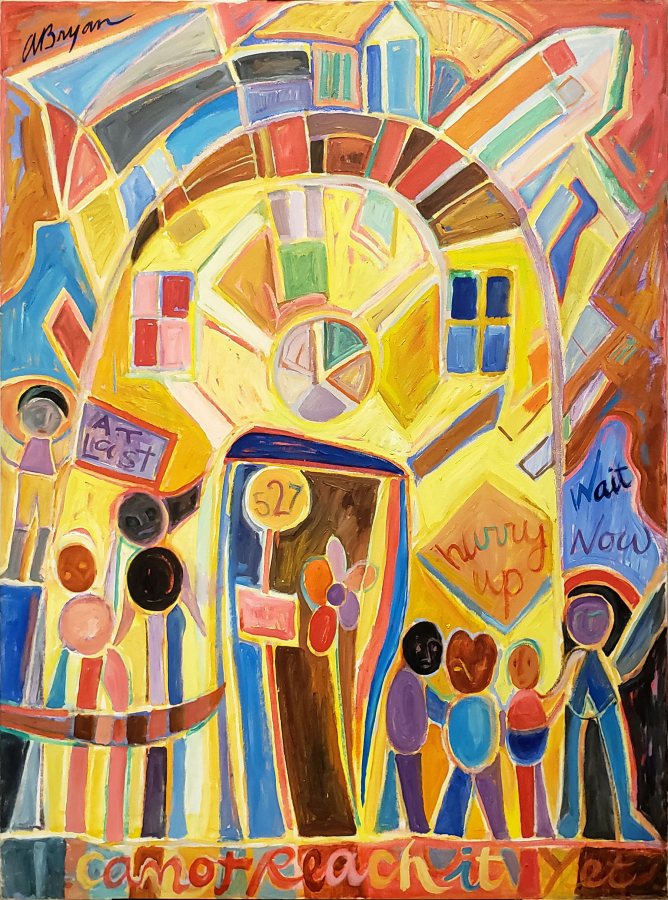
Guided by Caitlin Patton, assisted by Anthony Shostak, the tour provides information about Bryan’s life, influences, techniques, and mediums he used in his work, as well as the exhibition’s central subject matter and themes that are centered on African American experience. The tour will last 40–60 minutes, affording ample opportunity for questions and discussion.
- Registration is now closed.
Organized and led by: Caitlin Patton, Synergy Fellow for Museum Education, Bates Museum of Art; Anthony Shostak, Education Curator, Bates Museum of Art. Sponsored by: the Bates College Museum of Art.
Organizing Against Police Brutality: Every Mother’s Son
Workshop. This workshop features student leaders from Africana, Latinos Unidos, and the Jewish Student Union responding to, and leading a discussion about, the documentary Every Mother’s Son (you must have Bates credentials to log on to view film).
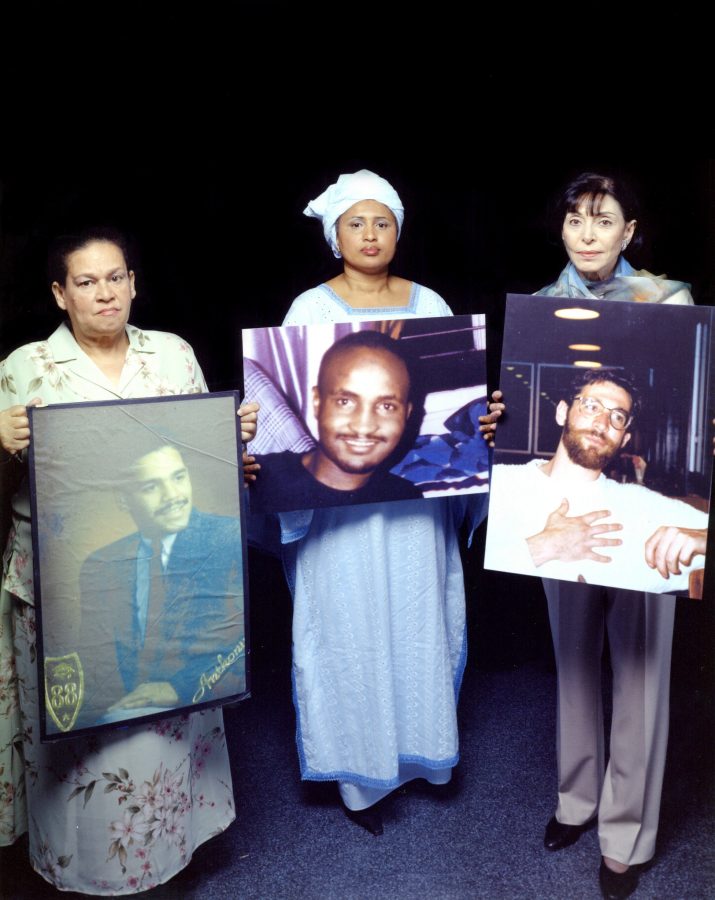
The workshop will focus on the alliances forged among Puerto Rican, Hasidic, and Guinean families who lost sons to police brutality in 1990s New York, and possibilities for similar pursuits of social justice in the present.
- Registration is now closed.
Led by: Bijou Kanyambo ’21, Oliver Barrera ’22, Alix Zabin ’22, and Ben Hoffinger ’22. Organized by: Stephanie Pridgeon, Assistant Professor of Hispanic Studies. Sponsored by: the Department of Hispanic Studies.
Racial Disparity, Structural Violence, and COVID-19 in Maine
Panel discussion. Racial disparities in Covid-19 deaths, a nationwide phenomenon, are nowhere more apparent than in the state of Maine: home to the widest, worst disparities in the US. The disproportionate impact of the pandemic on Black, Indigenous, Latinx, and other BIPOC people in Maine demands further consideration of the systemic racism, anti-Black violence, and economic and gender inequalities driving these outcomes. In this panel, local advocates for racial health equity and healing justice will discuss structural barriers, and structural privileges, in Maine and beyond, with a focus on intersectional approaches to rectifying the grossly unequal vulnerabilities to premature death facing BIPOC people in Maine.
- Registration is now closed.
Organized and led by: the Gender and Sexuality Studies Program.
Panel includes: Crystal Cron, Presente! Maine; Michael Kebede, Policy Counsel for the ACLU of Maine; Hibo Omer, Program Director, New Mainers Public Health Initiative; and Lisa Sockabasin (Passamaquoddy) Director of Programs & External Affairs, Wabanaki Public Health. Moderator: Leslie Hill, Harward Center Faculty Fellow, 2020-2021; Professor Emerit, Politics, Bates College. Respondent: Ian Khara Ellasante, Bates College, Assistant Professor of Gender and Sexuality Studies.
Home—Security—Health—Belonging: Searching the Past for a More Just Future
Panel discussion. This panel features Bates history majors whose research sits at the intersection of race, community agency, and justice, with topics ranging from land use, cultural symbols, and rebellion to the aftermath of “white flight,” rights abuses, and the ravages of HIV/AIDS. Together, the panelists highlight BIPOC communities’ quests for justice, healing, and belonging in times of seismic change.
- Registration is now closed.
Led by: Joan Buse ’21, Nathan Delmar ’21, Elizabeth Fairman ’21, Maximilian Friedenwald-Fishman ’21, Madeline Polkinghorn ’21, and Matthew Suslovic ’21. Organized by: Caroline Shaw, Associate Professor of History. Sponsored by: the Department of History.
12:15-1:15 | Lunch time panel
“This is Not Who We Are” Wait. What?!
We are honored to have this panel of experts come together to facilitate a community discussion of the political, racial and national happenings of the last four years, in 2020 and on January 6, 2021. “This is Not Who We Are” Wait. What?!offers a space to process national events across time, disciplines, and lived experiences. Please join us as Drs. Andrew Baker, John Baughman, Leslie Hill, Steve Engel and Mr. Allen Sumrall ’16 engage each other and our community on what is happening and what lies ahead. The session will be moderated by Dr. Noelle Chaddock.
- Registration is now closed.
1:15–2:45pm | Workshops Session II
A Fountain Worth Drinking From? On the Value of Social Science Research to Racial Justice
Panel discussion. From the Rev. Dr. Martin Luther King Jr. to Bayard Rustin, to Malcolm X, to Stokely Carmichael, to Ella Baker, to Alicia Garza and many others, Black-led activism has long pressed for justice, often calling the U.S. to live up to its principles. The researchers comprising this panel discuss their work, its relevance to racial justice, and the broader value of social science research.
- Registration is now closed.
Presented by: Megan Ming Francis, Associate Professor of Political Science, and Adjunct Professor of Law, Societies, and Justice, University of Washington; Ziad Obermeyer, Associate Professor of Health Policy and Management, University of California, Berkeley; and Omar Wasow, Assistant Professor of Politics, Princeton University. Moderated by: Michael Sargent, Associate Professor of Psychology. Sponsored by: the Program in Digital and Computational Studies; the Departments of Economics, History, Philosophy, Politics, Psychology, and Sociology; and the Social Sciences Division Chair.
#BlackLivesMatter and Martin Luther King, Part II: Justice
Workshop. Last year, this workshop examined how Martin Luther King’s legacy corresponded to the #BlackLivesMatter movement. While King’s legacy is often used to celebrate post-racial progress, groups like #BlackLivesMatter protest and organize against a continuum of anti-Black violence; they challenge such notions of progress. This year, we will present considerations of racial justice that have emerged from our study of the #BlackLivesMatter movement.
- Registration is now closed.
Led by: Students from AF/AM 227 “#BlackLivesMatter.” Organized by: Cassandra Shepard, Visiting Assistant Professor of Africana. Sponsored by: the Program in Africana.
Black Water Injustice: Indigenous Communities and the Rivers of Georgia
Workshop. More than 70,000 miles of rivers and streams wind through the state of Georgia. River settlements were traditionally inhabited by indigenous communities, such as the Creek, that were displaced in the 16th century by Europeans. This presentation will introduce the major rivers of Southeast Georgia, their historical importance to indigenous communities, and the historical and current injustices inflicted on these communities.
- Registration is now closed.
Organized and led by: Chad Posick, Associate Professor of Criminal Justice and Criminology, Georgia Southern University.
Black Languages Matter: Code Meshing and Multilingual Poetry as Anti-Racist Practices
Workshop. This workshop connects language justice with anti-racist pedagogies. It will begin with Neisha-Anne Green, director of the Academic Student Services Writing Center at American University, sharing her experiences with and research about code meshing, followed by Lewiston High School students performing multilingual poetry. After a brief Q&A, we will end with Bates students in breakout rooms facilitating collaborative writing exercises that will engage participants in multilingual writing, challenge racist language expectations, and enact community listening.
- Registration is now closed.
Led by: Patty MacKinnon, ELL/ELA Teacher Lewiston High School; Alex Onuoha ’20; Martha Reyes ’23; Raph (Sarah) Raphael ’21; Stephanie Wade, Assistant Director, Writing at Bates; and Guest Speaker Neisha-Anne E Green, Organized by: Stephanie Wade.
Beautiful at Bates: How Systems of Power Shape Personal Experience
Workshop. Who is beautiful at Bates? What is considered beautiful and what informs our beauty standards? We will be sharing our experiences at Bates and beyond and discussing the underlying and explicit ways in which systems of power influence how we feel about our bodies.
- Registration is now closed.
Organized and led by: Fabian Miemietz ’21. Sponsored by: the Multifaith Chaplaincy’s Stringfellow Program.
‘Can I Get a Witness?’ Two Plays on Race, Law Enforcement, and the Consequences of State-Sanctioned Violence
Performance. This is a reading of two plays united under the themes of race, law enforcement, and the violence inherent in the enforcement of the law, along with the kinds of discussions African Americans have regarding these issues.
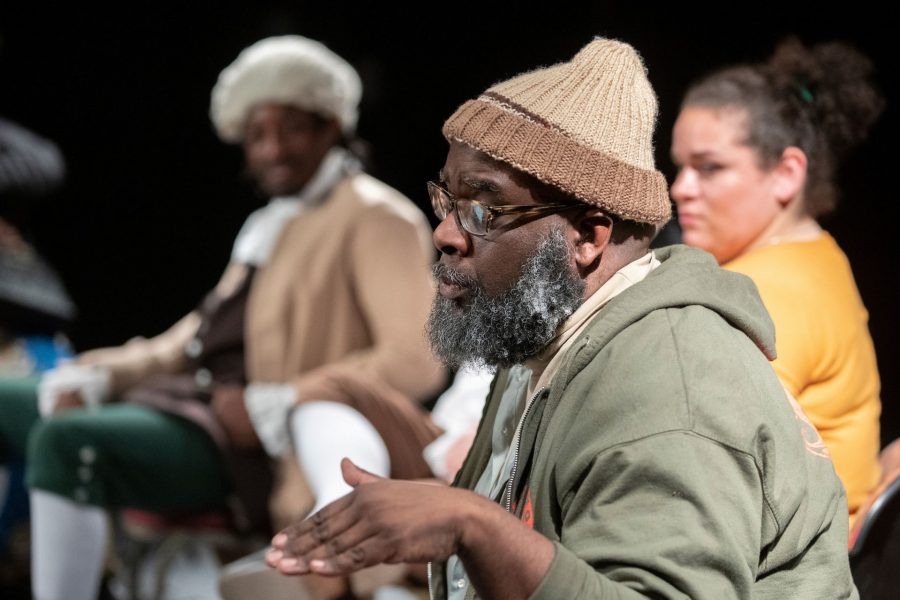
The plays will be followed by discussion with the actors, one of the playwrights, members of local government and law enforcement, and members of civil rights groups such as Black Lives Matter. This facilitated discussion will reflect on the plays, current events, and the future of the relationship between law enforcement and BIPOC people.
- Registration is now closed.
Presented by: Cliff Odle, Assistant Professor of Theater.
3–4:30pm | Workshops Session III
Blues and History: A Concert and Conversation with Samuel James
Performance. Olin Arts and the Bates Music Department present a concert and discussion with Maine musician, speaker, and journalist Samuel James. The event will open with a recorded performance, followed by a virtual interview and panel discussion. As a Black musician, James offers a unique voice and platform to help audiences acknowledge the history and implications of his chosen style of expression: the blues.
Organized by: Stuart Gurley, Instructor of Bass and Olin Arts Manager. Sponsored by: Olin Arts and the Department of Music
- Registration is now closed.
Data Justice: What Will an Anti-Racist Data Literacy Curriculum Look Like?
Panel discussion. Data can provide powerful, transformational information, but can also be used to perpetuate long-standing structures of inequality. Considering this central tension, students from the Environmental Studies course “Visualizing Data: Design, Power, Truth” will present and discuss proposals for a data literacy curriculum that foregrounds anti-racist principles. They will also suggest avenues toward positive change within our educational project at Bates. Discussion follows the panel presentation.
Led by: Students from ENVR 238: “Visualizing Data: Design, Power, Truth.” Organized by: Carissa Aoki, Lecturer in Environmental Studies. Sponsored by: the Program in Environmental Studies.
- Registration is now closed.
Between the Lines: Communications & the Predominantly White Institution in 2021
Workshop. Communications and Admission staff invite the Bates community to analyze the efficacy as well as the ethicality of the college’s marketing materials and practices. It will include a full group discussion, as well as breakout rooms for attendees to discuss how marketing practices are received by (and have an effect on) the current Bates community, with an ultimate goal of having a conversation grounded in honesty and transparency.
- Registration is now closed.
Organized and led by: Staff from the Bates Communications and Admission offices.
Q&A with Erin Pineda, Author of Seeing Like an Activist: Civil Disobedience and the Civil Rights Movement
Workshop. Erin Pineda’s forthcoming book challenges traditional narratives about the civil rights movement, showing how popular beliefs about civil disobedience have played into white-supremacist narratives. In this Q&A, Pineda will discuss with Bates’ Lisa Gilson the book’s argument and contemporary implications. Audience questions will follow.
- Registration is now closed.
Led by: Erin Pineda, Assistant Professor of Government, Smith College. Organized by: Lisa Gilson, Assistant Professor of Politics.
Exploring the History and Meaning of MLK Day
Panel discussion. This panel will examine the history of MLK Day from the early calls for a day to honor Dr. King to the holiday’s current manifestations. We’ll focus on sociological understandings of how the day was initiated, how it has evolved over time, and how it is celebrated around the nation today. We will use a sociological lens to understand the importance of MLK Day, the rituals and traditions involved, and controversies or conflicts surrounding the way the day is celebrated.
- Registration is now closed.
Led by: Emily Kane, Professor of Sociology, Bates; Benjamin A. Moodie, Visiting Assistant Professor of Sociology, Bates; Chad Posick, Associate Professor of Criminal Justice and Criminology, Georgia Southern University; and Michael Rocque, Associate Professor of Sociology, Bates. Organized by: Michael Rocque.
Reimagining Justice: Interrupting the Carceral State
Panel discussion. Increased attention to the carceral state and calls for abolishing the police are informing conversations about what reform of the justice system should or can look like. This panel will address what the carceral state is and how it has evolved and expanded over time. Panelists will share how interrupting the carceral state requires us to reimagine what justice is, what it looks like, and what it feels like. Otherwise, while striving to move forward and to do better, we end up staying in the same place.
- Registration is now closed.
Led by: Elizabeth Hinton, Associate Professor of the Social Sciences, Yale University; Carter Stewart, Managing Director, Draper Richards Kaplan Foundation; and DeVone Boggan, Chief Executive Officer, Advance Peace. Organized by: Imani Boggan ’21 and Bijou Kanyambo ’21.
4:45–5:30pm
The Rev. Dr. Benjamin Elijah Mays, Class of 1920, Debate
This ever-popular contest between Morehouse College and Bates students honors Dr. Mays, a Bates debater, longtime president of Morehouse, pioneer of the civil rights movement, and primary mentor to Martin Luther King Jr. This year’s motion: “This House regrets the portrayal of the Union in the Civil War as a morally righteous actor.”
- Registration is now closed.
8pm | Evening Program
Sankofa: Embracing Diasporic Conversations
The events that have transpired since March are not new to any participants of the panels. Even though we may all call different countries home, the reality of anti-Black violence follows us across all borders and all demarcations.
As Black people, we have come to terms with the very fact that violence is a part of our lived experiences and we spend large portions of our lives trying to avoid it or trying to survive. In this conversation, we foreground the lived experiences of Black people. We will do this in a way that does not reduce the conversation to a meditation on trauma, but rather we want to bring Black people, across diasporas, together for the chance to engage with one another and provoke serious, radical thoughts and imaginations. This will be a panel of Black sophomores, juniors, seniors, alumni, and some faculty members as well.
- Registration is now closed.
